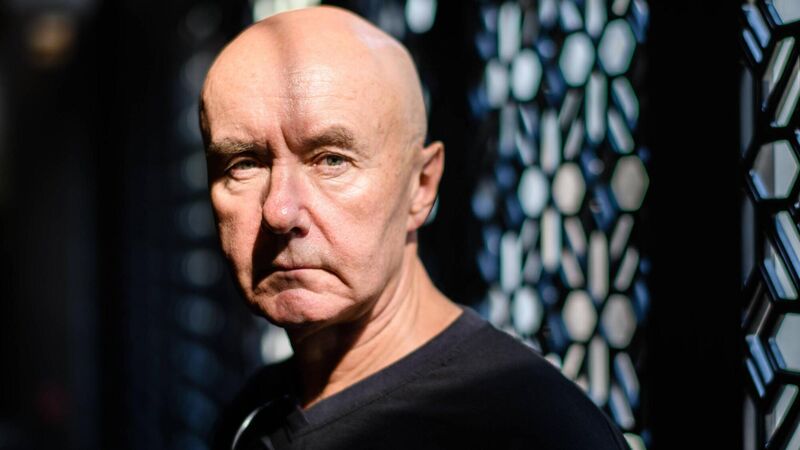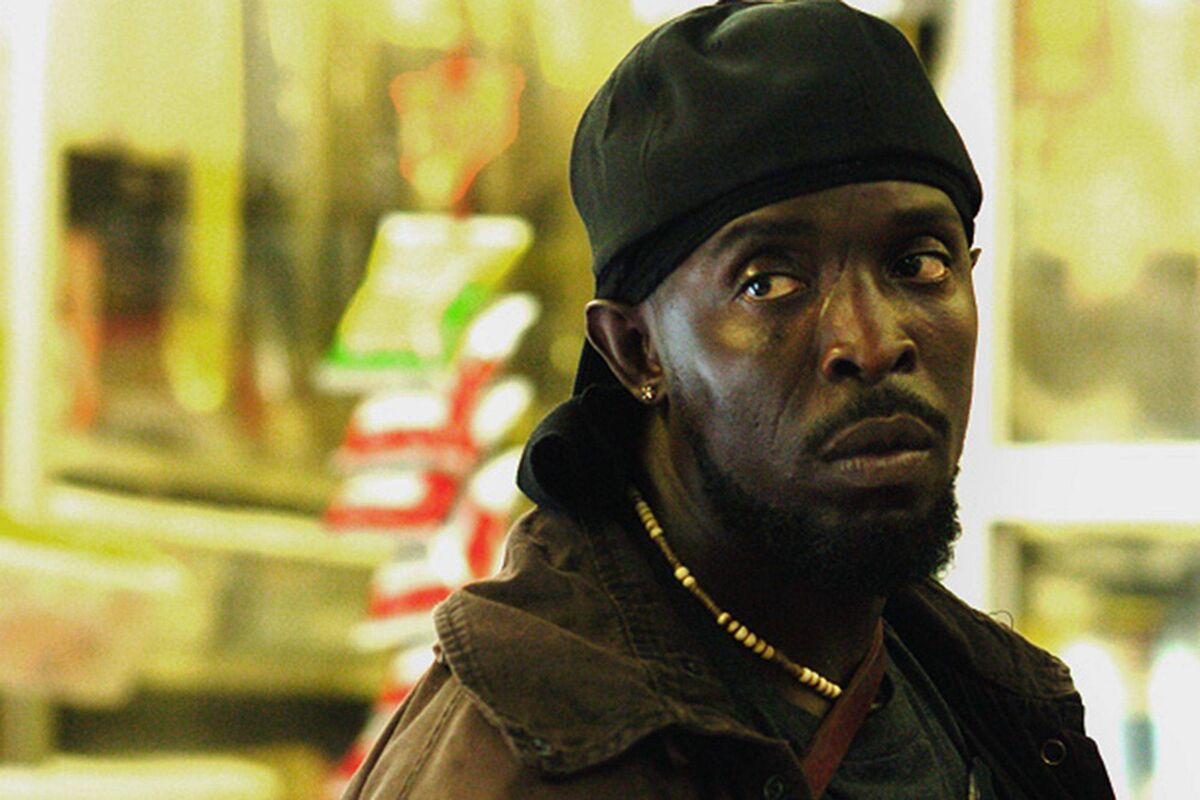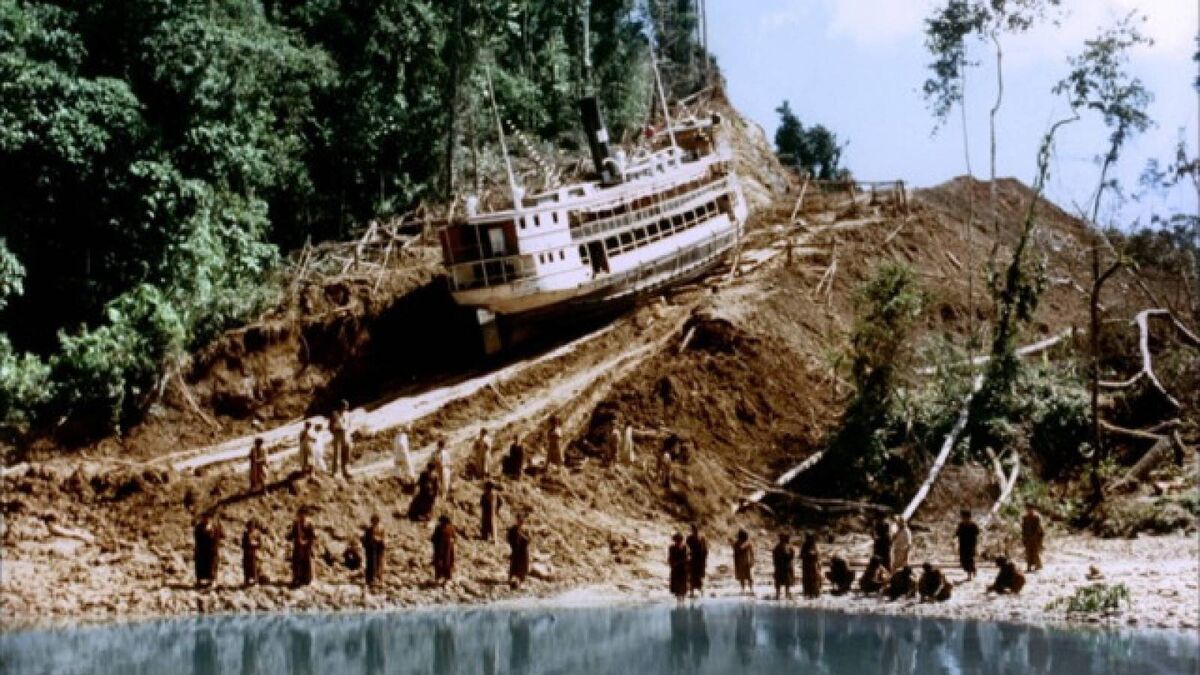Culture That Made Me: Irvine Welsh on Bowie, Bohs, and acid house

Irvine Welsh will be at Beyond the Pale, in Wicklow. Picture: Anthony Wallace/AFP/Getty
Irvine Welsh grew up in Edinburgh, Scotland. In 1993, his debut novel Trainspotting was published, and Its scabrous tales about drug-fuelled mates with a criminal bent was soon hailed as a classic. A few years later, Danny Boyle turned the book into a hit film.
Welsh’s subsequent mind-bending novels, plays and screenplays copper-fastened his position as the voice of the 1990s chemical generation. He appears at Beyond the Pale festival, Glendalough Estate, Wicklow, Friday, 10 June – Sunday, 12 June. See: itsbeyondthepale.ie.
For my generation of council-house kids, David Bowie was a one-man arts school. He gave us everything. He was a phenomenon. He was so generous with all his references and sources. You got into glam rock through him. Then he got you into soul. Then he got you into New York underground stuff like Lou Reed and Iggy Pop. He got you into literature, William Burroughs and the like. He got you into electronic music through Kraftwerk. He even got me interested in boxing. He's been such a massive influence on everything that I've done.
Iggy Pop was like a surrogate big brother to me. When I started going out and drinking and taking drugs and getting into bother and playing in crappy bands, I always thought what would Iggy Pop do in this situation in his full-fledged Stooges meltdown era? He was my guiding light. Any trouble he got into, I would try and emulate in my own Toy Town way.
Primal Scream can straddle all forms of rock’n’roll and dance music. They can do a really exciting, varied set, hitting a spot for live performance between a very dance-y type Stones space and a really full-on Chemical Brothers, pumped-up, house techno, big beat kind of thing. They’re one of the best live bands I've ever seen.
I don’t think I’ve come out of punk. I’m still immersed in it. I haven't found the way out of that maze. It determines all my sensibilities. I got an aesthetic in life that was based on it: basically not getting involved in any shit. Not taking any crap. If it is not good enough, get up there and do it yourself, a philosophy which was transferred into acid house. That was my big obsession after punk.
Acid house was much the same as punk: let's have a party; punk with a set of turntables. I used to DJ at Back to Basics, which was formed in 1991 by my pal Dave Beer. At 15 years old, he was on tour with The Clash. So many people that were the prime movers of acid house grew out of punk, people messing with drum machines and electronics, but their sensibility was formed by punk.
The whole idea in the late 1980s – when raves started – was that the world was boring. Everything was about making money and capitalism. It wasn’t about expression. It was very tedious for young people. You didn't have the internet, so everything happened on the streets, by word of mouth, with people connecting in their little groups and subcultures. It wasn't Instagram determining what everybody feels and thinks. It was very much: let's get out there and do it and get some like-minded heads together and have a bit of fun.

The Wire is my favourite TV series. It absolutely drew me in. It was a towering achievement. I don't think it's gonna be surpassed. Everything about it. It was a perfect piece of writing. The concept was great. It was thematically strong across every single part of it. The characters were brilliant: realist characters; and outlier fantasy characters like Omar. The whole thing was a perfect piece of TV making.
I’m a big Hibs football fan. When I moved down to London I got adopted by West Ham fans. That club became very important to me. When I moved to Dublin, I started going to Bohs games at Dalymount Park. If you get involved in a football team, you get a feel for the people in the city, whether it’s your own personal community or a host community. It’s a great thing to immerse yourself in. I couldn’t follow a team on TV that I'm never gonna see, which has no connection to me. It has to inform me about the community I’m living in.
I’ve always admired writers that are from different backgrounds and social milieu to me. A writer like Evelyn Waugh. His Sword of Honour trilogy, which is about upper-class English people, has nothing to do with me, but what I liked was the way he handled male relationships and the schadenfreude between men. That was quite influential to me.
Of all the Beats, William Burroughs was the most interesting. He was a real weird, messed-up artist. You couldn't have anybody else writing the way he did. He changed the face of literature. He encouraged writers to look at literature and art in a completely different way. His cut-ups spilled into Bowie and others. He was incredibly subversive, but an interesting writer as well.

I love Werner Herzog’s Fitzcarraldo. Klaus Kinski is so manic in it. His expression is mental. He's like Dimitri in The Brothers Karamazov – this guy who is constantly on the edge of his passions. A completely ADHD nutter of whom we all kind of know – we all have pals like the Klaus Kinski character: this guy’s brilliant, but he's tough to be around. His single-minded determination to get this boat through the jungle and over the mountain is phenomenal. Herzog is the perfect director. He’s so obsessive. It must have been amazing on set with these two characters because one is so calm and contained, the other passionate and off the wall.
I've read James Joyce’s Ulysses every single decade of my life. When I first read it, I was in my late teens. I didn't understand a word of it. In my mid 20s, a mate from Dublin said to me, “You're reading it the wrong way, as a story. Just trip on the language.” I liked it, but I still didn't get it. I read it again in my 30s and I really liked it. It was such a fabulous experience. When I moved to Dublin, I saw it as a travelogue – all the places that the characters inhabit. Every time I've read it, it's been a different book. It's a box of tricks. I'm mad about that book.


